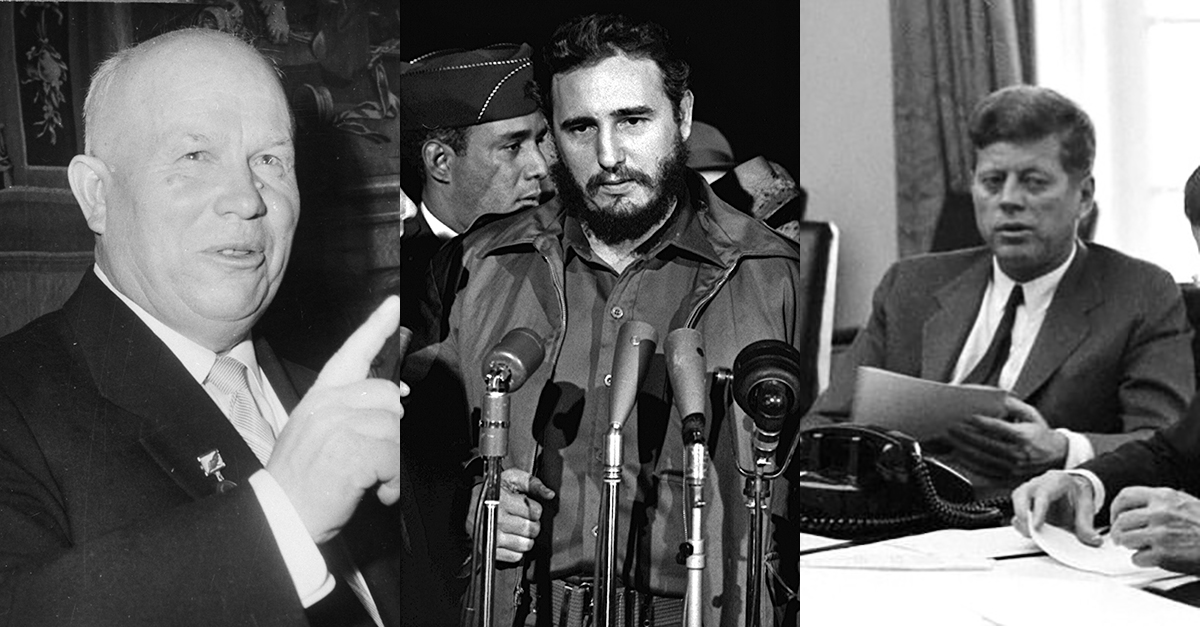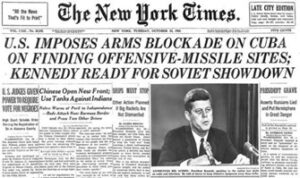BY IKE NAHEM
Author’s Note: This is updated and re-edited from an October 22, 2012 essay on the Cuban Missile Crisis.
The last two weeks of October 1962, 55 years ago, was the closest the world has come so far to a widespread nuclear exchange in what has become known as the “Cuban Missile Crisis.”
The First Use of Nuclear Weapons
In August 1945, the United States government, having, at that moment, a monopoly on the “atom bomb,” unilaterally dropped nuclear explosives, successively, on the civilian inhabitants of the Japanese cities of Hiroshima and Nagasaki. At the time of this clear war crime Japanese imperialism’s conquests and vast expansion in China, the Pacific Rim, and Southeast Asia, that began in the 1930s, had shrunk sharply. The Japanese rulers were utterly alone and isolated politically; their German Nazi ally was defeated, smashed, and under occupation. Japanese imperialism was in headlong retreat under intense attack from, on the one hand, rival colonial powers and imperialists fighting to get their colonial territories back, and indigenous independence forces in the remaining lands they occupied on the other. The latter was a mass upsurge for national independence and included resistance to Japanese aggression in parts of Manchuria in China, as well as Korea, Vietnam, and the “Dutch East Indies,” now Indonesia. At the time the decision to explode the nukes on Japanese cities was made, the Japanese navy was incapable of any operations and the Japanese merchant fleet was destroyed. The Japanese government had begun to send out “peace feelers,” fully aware of its hopeless situation. Washington’s utterly ruthless action – rationalized as necessary to prevent mass casualties for US soldiers in a ground invasion of Japan – finalized the defeat and prostration of the Japanese Empire in the Asian-Pacific “theater” of World War II…and sent an unmistakable shock and signal to the world for all time….etc
55 Years After Political Legacies of the Cuban Missile CrisisDOWNLOAD ARTICLE


